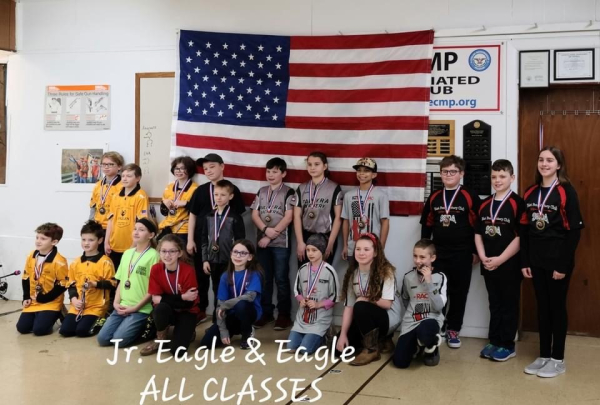Michigan: upcoming invasive species webinars feature law enforcement, boating hygiene and Lymantria dispar

New sessions of Michigan’s NotMISpecies webinar series will cover how conservation officers help prevent invasive species introductions, as well as ways to enjoy the outdoors while minimizing harmful effects of invasive plants, animals and pests.
Supported by the Michigan Invasive Species program, the monthly, hourlong webinars are designed to keep people informed about available programs, current research and emerging issues in the state and the Great Lakes region. Question and answer sessions and links to resources help attendees get the most out of each presentation.
“The AIS-Team” (9 a.m. Wednesday, Feb. 16) explores conservation officers’ role in preventing invasive species introductions through law enforcement. Join Cpl. Nick Torsky of the Department of Natural Resources Law Enforcement Division’s Great Lakes Enforcement Unit to learn about enforcing boating and bait-related regulations, oversight of live plant and animal trade in Michigan, interagency cooperation across the Great Lakes Basin and some recent investigations that highlight the DNR’s enforcement efforts.
“Step Aboard” (9 a.m. Thursday, March 24) provides an introduction to Michigan’s Clean Boats, Clean Waters grant program, offering resources to groups interested in aquatic invasive species prevention through increased boater education and awareness. Kelsey Bockleman and Paige Filice from Michigan State University Extension and Kevin Walters from the Michigan Department of Environment, Great Lakes, and Energy will reveal 2022 grant award recipients, share information on past projects and help groups prepare to apply for a grant from the program in 2023.
“New Name, Familiar Pest” (9 a.m. Thursday, April 14) focuses on Lymantria dispar (formerly known as gypsy moth), an invasive pest now considered naturalized in Michigan’s forests. An expert panel including Dr. Deborah McCullough from MSU, Dr. Steven Katovich of the U.S. Department of Agriculture’s Forest Service, Susie Iott of the Michigan Department of Agriculture and Rural Development, and the DNR’s James Wieferich will cover the unusual history of this pest in the United States and here in Michigan, and what you can do to reduce some of the unpleasant impacts of an outbreak. You’ll learn tips to help stressed trees recover from defoliation and options to help reduce the nuisance around your home.
“Clean It Up, Drain It Out, Dry It Off” (9 a.m. Thursday, May 12) will show how easy it is for boaters to adopt the Clean, Drain, Dry process to prevent the spread of aquatic invasive species. Kelsey Bockleman from MSU Extension and Kevin Walters from EGLE will provide a live demonstration of each step in the process. The team will demonstrate watercraft decontamination essentials using basic tools like towels and brushes and display the features and operation of a trailer-mounted mobile boat washing system.
If you are new to the series, it’s easy to catch up on topics including collaborative efforts in invasive carp management, early detection and response for aquatic invasive species, and the threat posed by spotted lanternfly. Recorded versions of all previous NotMISpecies webinars are available at Michigan.gov/EGLEEventsunder “Featured Webinar Series.”
Michigan’s Invasive Species Program, a collaborative effort of the departments of Natural Resources; Environment, Great Lakes, and Energy; and Agriculture and Rural Development, coordinates and supports invasive species initiatives across the state and provides support through the Michigan Invasive Species Grant Program.
Contact: Joanne Foreman, 517-284-5814






